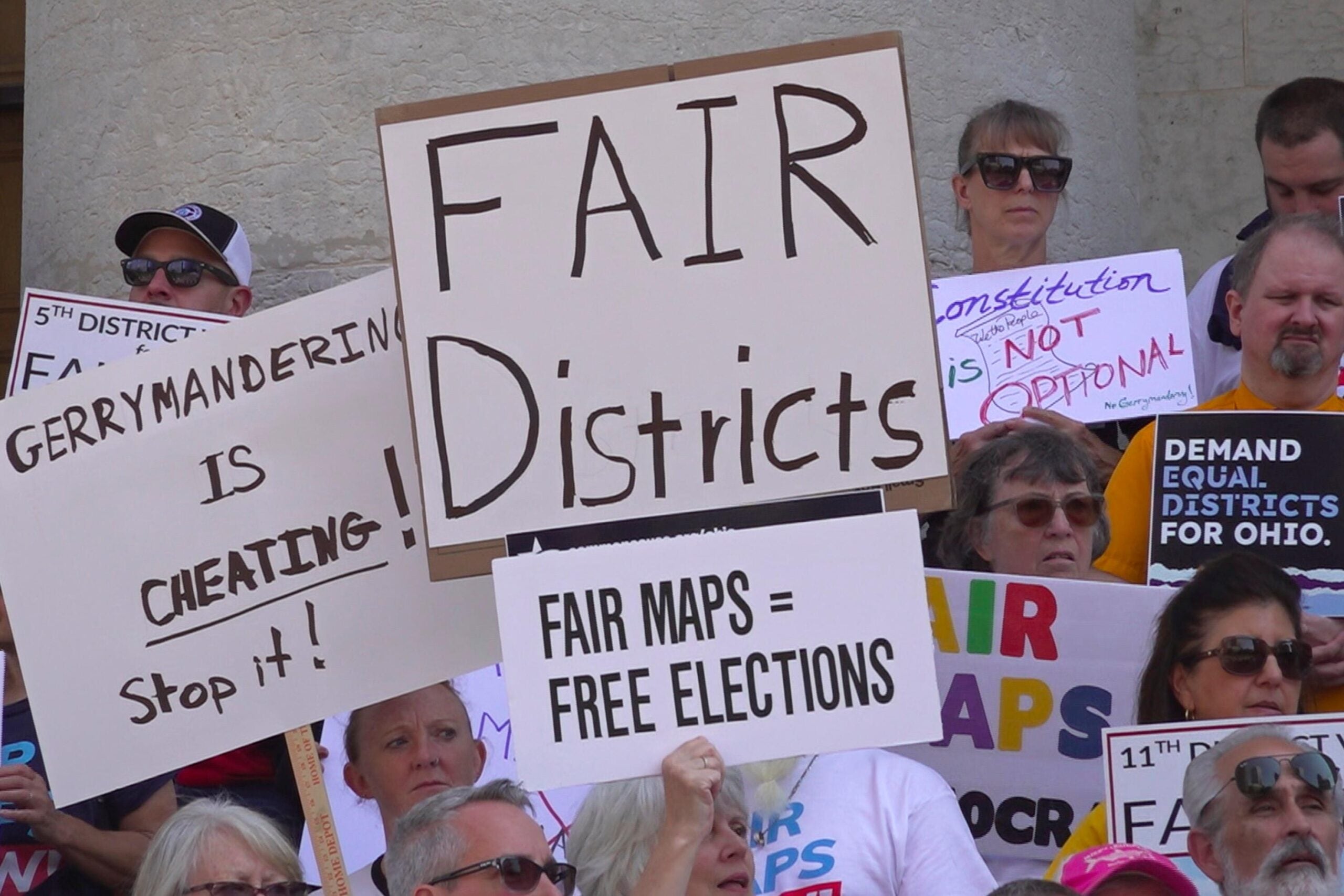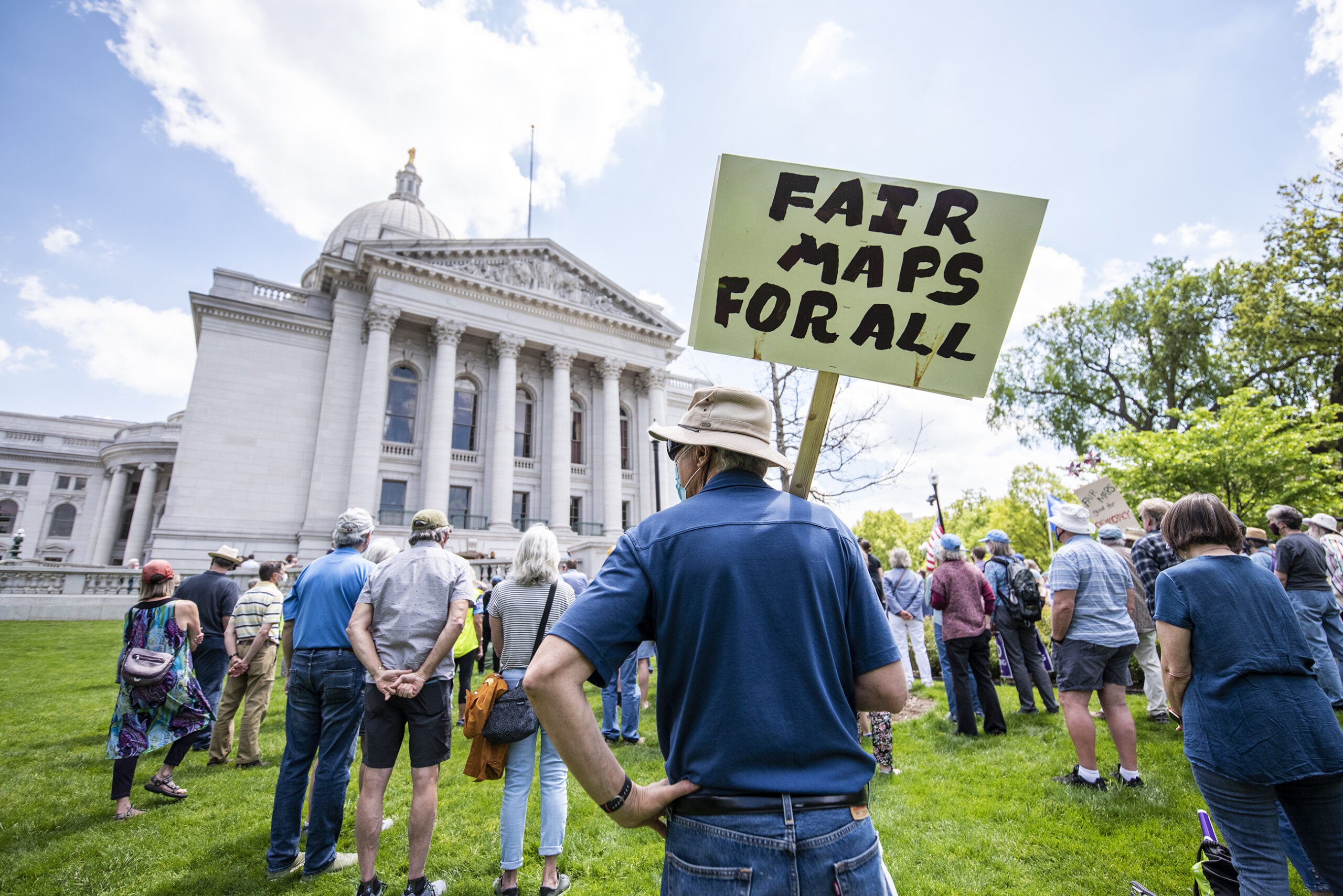A group of Democratic voters suing to overturn Wisconsin’s Republican-drawn legislative maps wants a federal court to consider the results of last week’s election in its decision.
Democratic plaintiffs challenging the map already argued results from the 2012 and 2014 elections showed evidence Republicans gerrymandered districts to give themselves a partisan advantage and diminish the voices of Democratic voters in the process.
Plaintiffs are now asking the court to also consider the 2016 election results, when Republicans won control of nearly two-thirds of the Legislature even though the state split roughly 50-50 between Democrats and Republicans in statewide races.
News with a little more humanity
WPR’s “Wisconsin Today” newsletter keeps you connected to the state you love without feeling overwhelmed. No paywall. No agenda. No corporate filter.
The Campaign Legal Center’s Ruth Greenwood, one of the lawyers challenging the map, said the 2016 election marked a continuation of a trend.
“It should be that the Legislature – the number swings back and forth depending on what the voters want,” Greenwood said. “Whereas at the moment, it doesn’t seem to matter what the voters want. We just continually get around 60 members of the state Legislature being Republicans.”
Assembly Speaker Robin Vos, who will preside over the largest Republican majority in the Assembly since 1957, downplayed talk of a gerrymandered map earlier this week, noting Republicans won several districts considered to be competitive.
“So it’s really about a record of achievement of our candidates and the way that they ran their own campaigns,” Vos said.
Republicans grew their majority in the Assembly by one seat to 64-35. They also added a seat in the state Senate where they now hold a 20-13 edge over Democrats.
In statewide races, Republican President-elect Donald Trump also won Wisconsin’s electoral votes, and U.S. Sen. Ron Johnson won his re-election campaign. But their races were much closer compared to the lopsided margins in the Legislature: Trump won roughly 48 percent of the vote in Wisconsin while Johnson won roughly 50 percent.
“If the majority of the people vote for Republicans, they should get a majority of the seats,” Greenwood said. “But it’s a question of how big that majority is.”
Federal judges wrapped up arguments in the gerrymandering trial in May. Greenwood said she’s hoping they rule in the next few weeks to give time for an appeal to the U.S. Supreme Court. If plaintiffs win, she said it would also give the state Legislature time to redraw the map with more competitive boundaries ahead of the 2018 election cycle.
Wisconsin Public Radio, © Copyright 2025, Board of Regents of the University of Wisconsin System and Wisconsin Educational Communications Board.





